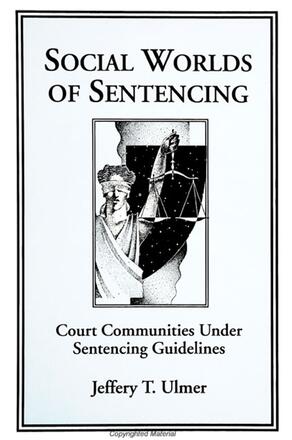
Social Worlds of Sentencing
Court Communities Under Sentencing Guidelines
Alternative formats available from:
Combines quantitative and qualitative data in a careful investigation of sentencing processes and context under Pennsylvania's sentencing guidelines.
Description
Many states and the federal system have embraced sentencing guidelines as a mechanism of sentencing reform. This book draws from interactionist theories of organizations, and James Eisenstein's depiction of courts as communities, to frame an investigation of sentencing disparity, case processing, and organizational relations under Pennsylvania's sentencing guidelines. The author provides a statistical analysis of statewide sentencing outcomes and a comparative statistical and ethnographic analysis of three different-sized county courts. The statistical data show that the major influences on sentencing are legally prescribed ones, but that factors such as conviction by trial, race and gender, and court size are also significant. Ethnographic data illuminate processes behind the statistics by connecting court organizational contexts to case processing strategies, and these strategies to sentencing outcomes. The book concludes with twelve general propositions for future research, discussing possibilities and limitations of sentencing guidelines, and addressing broader issues in the sociology of crime, law, and organizations.
Jeffery T. Ulmer is Assistant Professor of Sociology at Purdue University.
Reviews
"This book certainly stands out from most criminological studies in its evocation of broader sociological issues. Situating the book in the tradition of Eisenstein's work on courtroom culture and bringing in social interactionism and the social worlds/processual order approach enable this volume to appeal to a wider readership and significantly enhance the usefulness and intellectual appeal of the author's high-quality quantitative analysis. " -- Lynne Goodstein, Pennsylvania State University Crime, Law, and Justice Program
"This study takes research on sentencing to the next level by using current data and sophisticated statistical techniques and by incorporating statistical analysis of sentence outcomes with ethnographic data on court communities. The findings of the study --especially the findings that extralegal as well as legal variables influence sentence severity even under sentencing guidelines--have important policy implications. " -- Cassia C. Spohn, Criminal Justice, University of Nebraska at Omaha